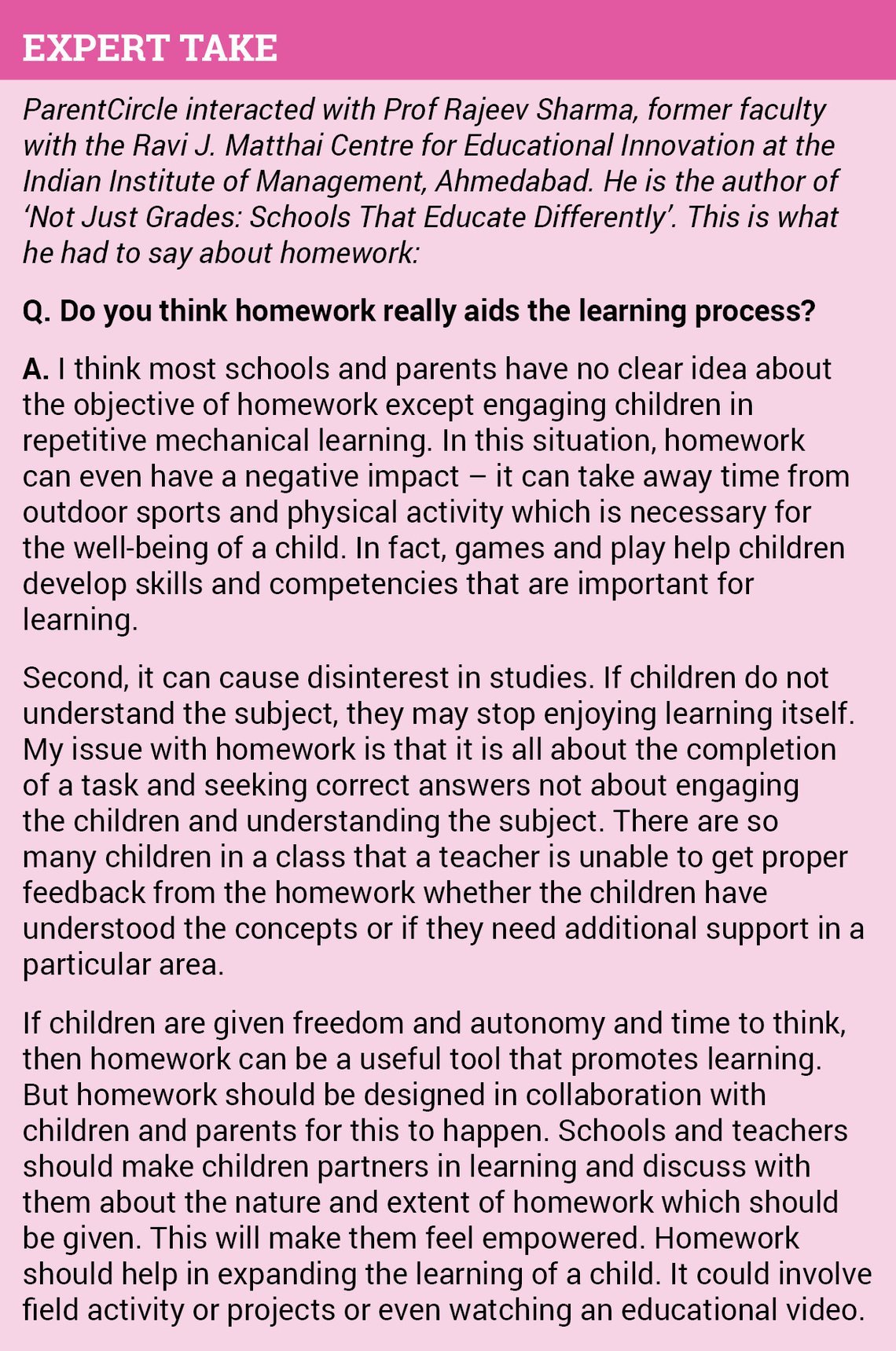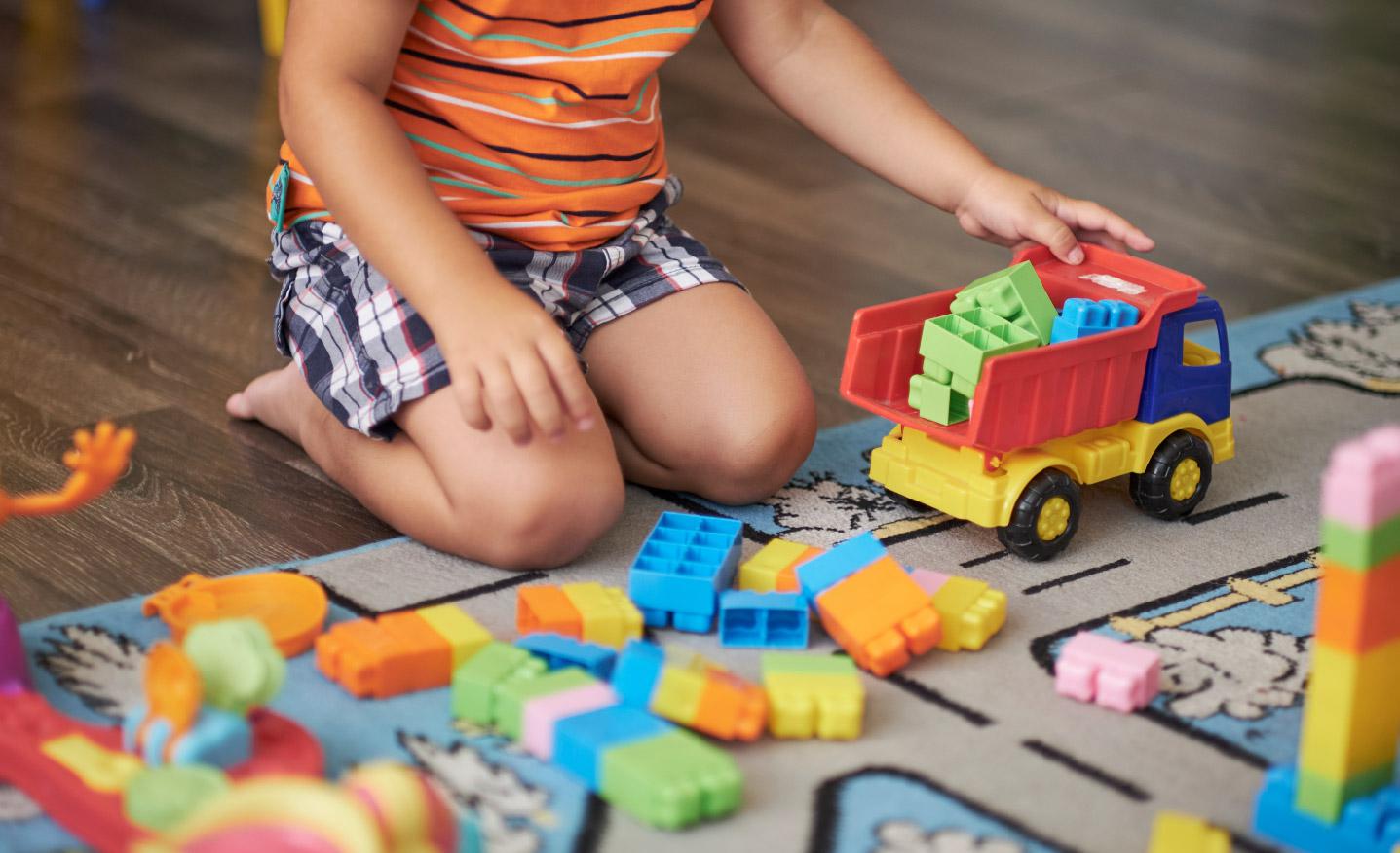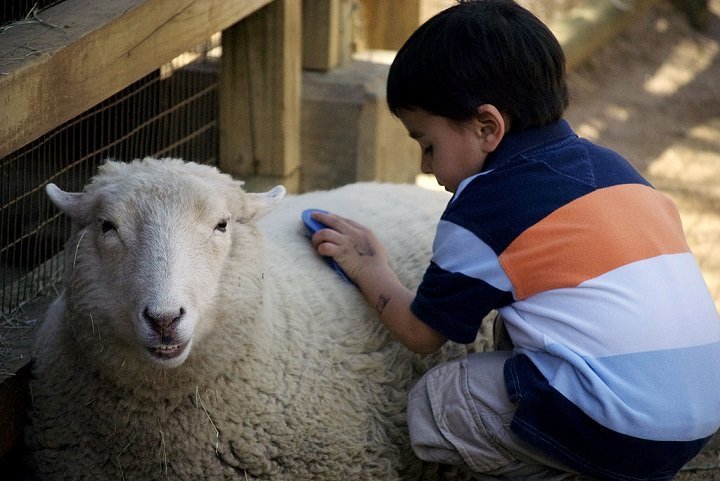Does homework really enhance learning in children? The answer may surprise you
While it may be a bugbear for children and parents alike to complete homework after a busy day at school and office, there are several benefits of doing homework

It was closing in at 8 pm. Deepa, 9, had been looking fitfully at the clock for the past half an hour. Her mother Radha had also been looking at the clock for the same reason. They were both asking the same question - when would homework get done? While Deepa just wanted to get done with her work and watch her favorite television show, Radha was worried about preparing dinner and winding up for the day. Why was the school giving homework that took three hours to complete each evening? It left her daughter no time for any physical activity or to play with friends.
Are you one of the parents who are in this predicament? 'Homework' is a dreaded word in many households. And homework time is feared by some parents as much as a toddler's bedtime tantrum is! Then, there is the ongoing debate about whether homework has value or not. Does homework really aid the learning process? Does it make a child develop good study habits and teach him responsibility? American psychologist Dr Ross W. Greene has spoken out emphatically against a heavy load of homework: "No kid should be getting three or four hours of homework a night. There's no breathing time, there's no family time, there are just extracurriculars and homework and then go to bed."

Benefits of homework
Dr Harris Cooper, professor of psychology and neuroscience at Duke University in the US, believes that homework does increase understanding and retention. He conducted an extensive review of homework studies in 2006 to find out whether homework is beneficial, and how much homework children should be given. The studies were conducted in the US. A majority of the research found that homework was linked to higher academic achievement. A stronger correlation was found in grades 7-12 than in grades K-6. The probable explanation could be that younger children have less developed study habits and are more prone to get distracted at home.
The positives
- Dr Janine Bempechat, clinical professor of human development in the US, writes that developmentally appropriate homework plays a critical role in the formation of "positive learning beliefs and behaviors". Homework enables a child to believe in her academic ability, confront complex tasks, motivates her to work towards mastery, and have higher aspirations for her future. In short, homework is a key vehicle through which we can help shape children into mature learners, she observes
- Among the learning strategies, one that applies to homework is 'retrieval practice' - trying to recall information and concepts you have learned. Ideally, this should be done not immediately after learning, but after a time gap. This is where homework proves useful
- Students who do homework are reportedly more attentive in class and work harder
- They get an opportunity to review what they have learned and practice skills they have acquired in class
- Homework helps students develop good study habits. It fosters independent learning and teaches children responsibility. Homework also builds time management skills
- It gives parents an opportunity to get involved in school life
- Homework gives teachers feedback on areas where students may require more support
Counterview Whether homework is really beneficial is a hotly debated topic. American author and lecturer in the areas of education, parenting, and human behavior, Alfie Kohn is of the view that research does not support major benefits. In his book The Homework Myth , he observes: "Overall, the available homework research defines "beneficial" in terms of achievement, and it defines achievement as better grades or standardized test scores. It allows us to conclude nothing about whether children's learning improves."
Kohn cites the following reasons why research studies that are pro-homework may have their weaknesses:
- At best, most homework studies show only an association, not a causal relationship
- Homework studies confuse grades and test scores with learning
- Even where they do exist, positive effects are often quite small.
- There is no evidence of any academic benefit from homework in elementary school
- Homework seems to be more beneficial when it involves rote learning and repetition rather than real thinking
- Studies have not tried to address the question of whether homework enhances the depth of a student's understanding of concepts or their passion for learning
The negatives
- Children spend long hours in school and commuting. In addition, there is homework. This leaves children with hardly any leisure time. Important life skills are picked up during the course of leisure time activities
- Homework can lead to boredom with schoolwork and learning
- If homework is given without concepts being explained properly in class, it could lead to students feeling helpless and losing interest in their studies
- Parents can get too involved in homework - pressuring their child and confusing him by using different instructional techniques from the teacher
- Too much homework could cause physical health problems like headache, stomach troubles, and sleep deprivation in students
- Can result in anxiety and stress for children
- Homework puts children from less educated and less affluent families at a disadvantage as their parents may not be able to help them academically or with access to technology
Perceptions of Homework
An interesting project ' Perceptions of Students and Teachers with respect to Homework Assignments - A Comparative Study ' was undertaken by Ammu Santosh and Ritu Parmar, teachers of Vidyashilp Academy, Bengaluru, in 2018, when they were doing a course at the Indian Institute of Management, Ahmedabad. The study found a positive correlation between the submission of homework assignments and average class marks. For instance, for Grade 11 students when homework submissions fell from 76% to 41%, the class average in economics fell from 83% to 67%. Teachers felt the objective of giving homework was to reinforce concepts taught in class. While students agreed with this, they also strongly believed that doing homework was to get internal assessment marks. Ten out of 21 students surveyed preferred having no homework because:
- Homework reduces the time for self-study and recreation
- Homework is repetitive and unproductive. It is unnecessary as concepts are already understood in class
- It adds pressure
- Class tests are more useful than homework
The remaining students who supported homework had this to say:
- Homework helps keep concepts fresh in mind and reinforces learning
- It improves understanding and helps in learning a topic well. It helps in the revision
- Homework that does not burden students is good for learning
Suggestions that came up from the study were:
- Homework assignments should be matched to the skills, interests, and needs of the students. Varied assignments should be given
- Students preferred short assignments, and textual questions and research work
- They said they preferred one homework assignment per subject per week
- The assignments should be focused and well-structured

How much homework is too much? Irrespective of the ongoing debate on the merits of homework looks like homework is here to stay, at least in mainstream schools. In fact, if such a school does not give sufficient homework, some parents may feel it is not doing a good job. But what is an appropriate amount of homework? Dr Cooper and colleagues recommend the '10-minute rule' - a maximum of 10 minutes of homework daily per grade level. For instance, children in grade 1 would do 10 minutes of homework while those in high school would do around two hours. It has been found that too much homework can stop bringing in academic benefits.
Quality is the key Apart from the ideal quantum, homework quality is of great importance. If homework assignments are interesting and fun a child is likely to enjoy them. If it is just repetition and memorizing a child will get bored and feel it is a burden. It is important to make homework about understanding and applying concepts and learning in a creative way.
Good quality and effective homework is interesting and relevant. It should make a child think and solve problems in the real world. Children could be given a choice and a degree of autonomy to motivate them to do homework.
Homework assignments could be various kinds - fill in the blank worksheets or answering multiple-choice questions to projects and quizzes students have to take without consulting their textbook or notes. Shorter assignments are more effective if they are designed well as they hold the interest of students.
Making homework fun
Teachers need to give students interesting home assignments that get them thinking. And, parents, on your part, you can enliven the homework hour so that both you and your child start looking forward to it!
Before we describe how homework can be made less of a chore, let's examine how the parental role and attitude to homework impact a child. According to Dr Bempechat, the type of parental help in homework matters. She says that 'supportive' help predicts higher achievement, while 'intrusive help' is linked to lower achievement. Also, how parents view homework also makes a difference. Children do better in school when their parents are focused on 'mastery'. If parents focus on their child's performance relative to his peers, he is likely to avoid challenges.
Here are some tips for parents to make homework a more enjoyable and relaxing activity for both you and your child: Connect with the teachers: It is important for parents and teachers to collaborate for optimal learning outcomes of children. Talk to the teachers if you feel the homework given is excessive. Or, if it is uninteresting and repetitive. Also, ask the teachers how you can help with homework - how best you can reinforce the skills taught in school.
Turn homework into a game: If your child finds homework boring, try to make it lively by making it a fun game. Experienced teacher Marty Newport's book Homework Games gives parents tips and suggests games on making learning fun. Her aim: to make children stop complaining about homework and get them excited about doing it.
Provide structure: Fix timings for homework in consultation with your child. Some children may want to dive into homework in the afternoon so that they can go out to play in the evening. Others may want to rest in the afternoon, finish the play and do their homework in the late evening.
Find the right place: Assign a quiet, well-lit spot for homework with minimum distractions. Ensure your child has all the books and stationery handy.
Follow homework with a preferred activity: According to the Premack Principle, highly preferred activities are effective as reinforcers for less preferred ones. So if homework is followed by an activity your child likes, such as a trip to the nearby park, half an hour of watching television, or playing with you, it could motivate him to complete his homework.
Invite his friends over: The tedium of homework can be vastly reduced for your child if she has a friend doing it with her. Of course, you will have to set a few rules so that too much time is not wasted in getting distracted.
Guide him to think for himself: Be available to provide help when your child gets stuck or asks a question. Guide him in the right direction if he seems lost, but do not assist too much and make it too easy for them. That will rob them of a sense of achievement of figuring out a problem on their own. You could also get learning Apps that could help your child understand concepts he may be struggling with and make homework less intimidating.
Break up the tasks: Divide the homework into pieces that they can do with 20-minute breaks in-between to prevent fatigue and tedium. Get them to start on the difficult assignments first when they are more mentally alert. Give them healthy snacks they like. This will not only serve as a break but will give them the energy to work attentively.
Sit with them and do your own work: You can bring your own pending tasks and complete them while supervising your child's homework. This way they know they are not the only ones working.
Maintain a positive attitude: If you tell your child that doing homework will help him learn better, he is also likely to feel positive about it. However, if you criticize his teachers for giving homework or make it sound like a burden your child is bound to dislike homework. At the same time, keep it light. Do not make too much of an issue with homework and marks. Your child's overall development and well-being are what is important.
Finally, doing away with homework completely may not be the right solution. Instead, homework should be structured to be short and interesting so that it doesn't become a burden for a child.
What you could do right away
- Work with the teachers to ensure homework is of an appropriate quantity
- Ensure your child gets sufficient time to unwind and have fun
- See that your child does not develop anxiety issues or stress about homework

Simi Ramesh Dec 26, 2019

Comment Flag
Abusive content
Inappropriate content
Cancel Update
Related Topics See All
More for you.
Explore more articles and videos on parenting

Primary to Teen • 5 Mins Read • 4.9K Views
Tips For Helping Your Child With School Projects: Preparation, Research, And Execution
Wondering how you can help your child excel at her school projects? The following tips will show you what you can do to pitch in

Primary to 18+ • 12 Mins Read • 46.2K Views
Open your mind to Open Schooling: What You Should Know About This System Of Education
Open learning is an alternative education system available for your child. Here's all you need to know about the Open school system, the open school boards in India, and the schools of open learning.

Teen to Parent • 10 Mins Read • 2.4K Views
What Does It Take To Be A Good 21st Century Teacher? In Chat With Author Maya Thiagarajan
How do today's teachers keep up with new technology, teaching methods and also, mentor students right? We ask renowned educational consultant and bestselling parenting author, Maya Thiagarajan.
- Communities
Join a community to interact with like-minded parents and share your thoughts on parenting

2.5K members • 79 Discussions
Curiosity, tantrums and what not!

1.9K members • 72 Discussions
The Active and Enthusiastic Middle Years

11-18 Years
1.8K members • 91 Discussions
From Self-consciousness to Self-confidence

Just for Parents
4K members • 180 Discussions
A 'ME' space to just BE!
Discussions Topics
Share your thoughts, parenting tips, activity ideas and more
Joy of Celebration
Hobbies and entertainment, new member introduction.
- Discussions
Share your thoughts, tips, activity ideas and more on parenting
Participate in the Festive Rangoli Photo Contest 2024 for Diwali, Dussehra & Navratri - Win Exciting Prizes!
A very happy diwali 2024 everyone, as a parent: life lessons learned from children, kids and their girlfriends/boyfriends, advantages and disadvantages of parenting styles in child development.
A compilation of the most-read, liked and commented stories on parenting


Choosing An Engineering Course: What Your Teen Should Know
9 Mins Read • 3.7K Views

Mathemagic At Home V
2 Mins Read • 434 Views

Top 10 fun and interesting spelling games that will spark excitement in pre-teens
3 Mins Read • 9.6K Views

The Benefits Of Play In Early Childhood Development—Give Your Child A Headstart
5 Mins Read • 19K Views

Fun Facts On Farm Animals: Things Every Child Should Know
9 Mins Read • 5.8K Views

What To Do Before An Exam?
11 Mins Read • 6K Views
Top Searches
- Notifications
- Saved Stories
- Parents of India
- Ask The Expert
- Community New
- Community Guideline
- Community Help
- Gadget Free Hour
- The Dot Learning Circle
- Press Releases
- Terms of use
- Sign In Sign UP
We use cookies to allow us to better understand how the site is used. By continuing to use this site, you consent to this policy. Click to learn more
- Newsletters
- Help Center
- A.M. ATL Newsletter
- Georgia Decides: Voter Guide
- Politically Georgia
- High School Sports
Does homework help? New study says yes
Although the homework wars of past years seems to have subsided, the debate continues over whether kids benefit from after-school assignments.
Parents are divided on the value of homework. Some consider homework vital reinforcement and practice of what their kids learn in school, while others dismiss it as busy work that adds stress to family routines.
A new study out of Ireland offers findings that could appease both factions.
Researchers at Maynooth University’s Hamilton Institute and Department of Mathematics and Statistics in Ireland used a new artificial intelligence model to analyze data from the Trends in International Mathematics and Science Study , often called TIMSS. An international assessment, TIMSS measures the mathematics and science achievement of students in fourth and eighth grades across around 70 participating countries, including the United States.
Published in the international journal Learning and Instruction, the study focused on 4,118 Irish eighth graders. It examined how their homework patterns affected their math and science performance.
Among the key findings:
Frequency Over Duration : The study highlights that the frequency of homework is more important than its duration. Daily homework assignments were found to be most effective for improving mathematics achievement, while science performance benefited most from homework assigned three to four times a week.
Effectiveness of Shorter Assignments : Short homework tasks, lasting up to 15 minutes, were shown to be just as effective as longer assignments. This suggests regular, concise homework can promote learning without overwhelming students with excessive work.
Equity in Benefits : Contrary to previous research, this study found that all students, regardless of socioeconomic background, experienced similar benefits from homework, indicating equitable advantages across diverse student populations. The researchers advocate for homework policies prioritizing regular, short-duration assignments to optimize student engagement and academic success without causing undue stress.
“Our study provides strong evidence that regular homework can significantly enhance student performance, especially when given little and often,” said author Nathan McJames in a statement about the study findings. “By avoiding very long homework assignments, this also allows students to balance schoolwork with other important activities outside of school.”
About the Author

Maureen Downey has written editorials and opinion pieces about local, state and federal education policy since the 1990s.

Charles Seabrook

Does homework really work?
by: Leslie Crawford | Updated: December 12, 2023
Print article

You know the drill. It’s 10:15 p.m., and the cardboard-and-toothpick Golden Gate Bridge is collapsing. The pages of polynomials have been abandoned. The paper on the Battle of Waterloo seems to have frozen in time with Napoleon lingering eternally over his breakfast at Le Caillou. Then come the tears and tantrums — while we parents wonder, Does the gain merit all this pain? Is this just too much homework?
However the drama unfolds night after night, year after year, most parents hold on to the hope that homework (after soccer games, dinner, flute practice, and, oh yes, that childhood pastime of yore known as playing) advances their children academically.
But what does homework really do for kids? Is the forest’s worth of book reports and math and spelling sheets the average American student completes in their 12 years of primary schooling making a difference? Or is it just busywork?
Homework haterz
Whether or not homework helps, or even hurts, depends on who you ask. If you ask my 12-year-old son, Sam, he’ll say, “Homework doesn’t help anything. It makes kids stressed-out and tired and makes them hate school more.”
Nothing more than common kid bellyaching?
Maybe, but in the fractious field of homework studies, it’s worth noting that Sam’s sentiments nicely synopsize one side of the ivory tower debate. Books like The End of Homework , The Homework Myth , and The Case Against Homework the film Race to Nowhere , and the anguished parent essay “ My Daughter’s Homework is Killing Me ” make the case that homework, by taking away precious family time and putting kids under unneeded pressure, is an ineffective way to help children become better learners and thinkers.
One Canadian couple took their homework apostasy all the way to the Supreme Court of Canada. After arguing that there was no evidence that it improved academic performance, they won a ruling that exempted their two children from all homework.
So what’s the real relationship between homework and academic achievement?
How much is too much?
To answer this question, researchers have been doing their homework on homework, conducting and examining hundreds of studies. Chris Drew Ph.D., founder and editor at The Helpful Professor recently compiled multiple statistics revealing the folly of today’s after-school busy work. Does any of the data he listed below ring true for you?
• 45 percent of parents think homework is too easy for their child, primarily because it is geared to the lowest standard under the Common Core State Standards .
• 74 percent of students say homework is a source of stress , defined as headaches, exhaustion, sleep deprivation, weight loss, and stomach problems.
• Students in high-performing high schools spend an average of 3.1 hours a night on homework , even though 1 to 2 hours is the optimal duration, according to a peer-reviewed study .
Not included in the list above is the fact many kids have to abandon activities they love — like sports and clubs — because homework deprives them of the needed time to enjoy themselves with other pursuits.
Conversely, The Helpful Professor does list a few pros of homework, noting it teaches discipline and time management, and helps parents know what’s being taught in the class.
The oft-bandied rule on homework quantity — 10 minutes a night per grade (starting from between 10 to 20 minutes in first grade) — is listed on the National Education Association’s website and the National Parent Teacher Association’s website , but few schools follow this rule.
Do you think your child is doing excessive homework? Harris Cooper Ph.D., author of a meta-study on homework , recommends talking with the teacher. “Often there is a miscommunication about the goals of homework assignments,” he says. “What appears to be problematic for kids, why they are doing an assignment, can be cleared up with a conversation.” Also, Cooper suggests taking a careful look at how your child is doing the assignments. It may seem like they’re taking two hours, but maybe your child is wandering off frequently to get a snack or getting distracted.
Less is often more
If your child is dutifully doing their work but still burning the midnight oil, it’s worth intervening to make sure your child gets enough sleep. A 2012 study of 535 high school students found that proper sleep may be far more essential to brain and body development.
For elementary school-age children, Cooper’s research at Duke University shows there is no measurable academic advantage to homework. For middle-schoolers, Cooper found there is a direct correlation between homework and achievement if assignments last between one to two hours per night. After two hours, however, achievement doesn’t improve. For high schoolers, Cooper’s research suggests that two hours per night is optimal. If teens have more than two hours of homework a night, their academic success flatlines. But less is not better. The average high school student doing homework outperformed 69 percent of the students in a class with no homework.
Many schools are starting to act on this research. A Florida superintendent abolished homework in her 42,000 student district, replacing it with 20 minutes of nightly reading. She attributed her decision to “ solid research about what works best in improving academic achievement in students .”
More family time
A 2020 survey by Crayola Experience reports 82 percent of children complain they don’t have enough quality time with their parents. Homework deserves much of the blame. “Kids should have a chance to just be kids and do things they enjoy, particularly after spending six hours a day in school,” says Alfie Kohn, author of The Homework Myth . “It’s absurd to insist that children must be engaged in constructive activities right up until their heads hit the pillow.”
By far, the best replacement for homework — for both parents and children — is bonding, relaxing time together.

Homes Nearby
Homes for rent and sale near schools

How families of color can fight for fair discipline in school

Dealing with teacher bias

The most important school data families of color need to consider
Yes! Sign me up for updates relevant to my child's grade.
Please enter a valid email address
Thank you for signing up!
Server Issue: Please try again later. Sorry for the inconvenience
How Is Homework Helping Students Learn?
- Share article

Practice, or reinforcement of a skill, is part of the educational process. Practice in classwork and homework is an important part of guaranteeing students are learning what is being taught. Skilled, targeted practice is what is planned but the art of practice is both complex and simple.
In sports, theatre, and music programs, a model for how to develop expertise lives right in front of us. To acquire a skill, practice is necessary. Yet, when practice is unsupervised and lacks immediate feedback, frustration can arise, motivation can wane, and bad form can be embedded. Learning is either limited or non-existent without the practice feedback loop ongoing. In sports, a targeted skill is focused on and the coach gives consistent feedback as the player practices that one skill. In the arts the same is true. Skills are identified, modeled, and the students or players or actors, or musicians are given feedback on the skill(s) identified so that practice becomes both targeted and informed. Feedback is key. Encouragement is essential.
Homework is the best example of how educators can improve the use of practice. No matter whether as an educator or a parent, homework as practice remains a standard that might serves many purposes. Teachers use homework to offer students a chance to reinforce what they have learned and what they complete contributes, most often, to a grade. Parents use homework to see what their children are learning and some use it to become partners in the learning experience. Interesting, if it happens that way. Homework has the intention of reinforcement but often lacks the narrow focus for practice. In addition it sends children home without the teacher’s knowledge or confidence that the practice is based on knowledge attained. It can become reinforcement of doubt, frustration, or worse, reinforcement of incorrect information or skills. Doing something over and over is good if it is targeted and informed; if feedback is timely and consistent.
How Teachers Are Taught
After teachers gain their degrees and certification, they rely on professional development opportunities throughout their careers to continue their learning. Often these opportunities have been what has become known as ‘one and done’ professional development opportunities. These were usually selected to impact the broadest sweep of faculty at once. However, the follow-up, reinforcement, and support varies depending on the amount of attention school leaders give following the ‘one and done’. Other ways teachers continue learning is individual. They apply to go to a conference or training, are approved, attend, and return. Whether what is learned is embedded in their future practice is often left up to the teacher. After all, how many new things can a leader keep track of, follow up, and support?
Ericcson and Pool argue that “deliberate practice requires a teacher who can provide practice activities designed to help a student improve his or her performance” (p.98). Deliberate practice is informed practice, guided by “the best performers’ accomplishments and by understanding of what these expert performers do to excel” (p.98).
How do we know for certain, that all homework, particularly in the early grades, teaches what we want it to and what Ericcson and Pool describe? Some might say it teaches responsibility. But for those students who left the classroom without an adequate grasp of the material, it may undermine its intention. Instead it develops frustration and kills motivation. It has the potential of reinforcing the wrong way to do something, or even a belief that ‘I can’t do this’. These happening in the early years can stop students from pushing forward, developing grit, and finding success.
Change the Environment for Teachers’ Learning
Change how we work with teachers so they can change the way they work with their students. No matter the behavior or skill targeted, might we be able to change the environment to be one of learning, continuous learning, for the adults in which targeted practice and feedback are valued and excellence is recognized? The shift in thinking that this can put in motion requires that the leader remain constant in their role that focuses on the agreed upon skills and behaviors that are being practiced. It required consistency and dedication. It invites the development of professional collegiality where those learning new skills practice together and give feedback to each other.
Before shifting the manner in which teachers plan for practice for their students, consider implementing it with the teachers first. Teaching and learning is not an exact science, like playing an instrument or playing tennis. However, we, in education do know the complicated factors that affect learning. Taking that into consideration, isn’t there a way to use deliberate practice where it applies? Rather than assigning independent work because we always have, assign it with the knowledge that the practice will be correct and effective and supported with immediate feedback. Discussions and feedback about what is being implemented and how it will affect the practice of the teacher are essential. Changing the way teachers receive feedback and are asked to practice new, targeted skills offers the model for what you ask them to do with their students. Consider being a model of the change.
A nn Myers and Jill Berkowicz are the authors of The STEM Shift (2015, Corwin) a book about leading the shift into 21st century schools. Ann and Jill welcome connecting through Twitter & Email .
Resource: Ericsson, A. & Pool, R. (2016). Peak: Secrets from the new science of expertise. New York: Houghton Mifflin Harcourt
Photo courtesy of Pixabay
The opinions expressed in Leadership 360 are strictly those of the author(s) and do not reflect the opinions or endorsement of Editorial Projects in Education, or any of its publications.
Sign Up for The Savvy Principal

IMAGES
VIDEO
COMMENTS
“Parents don’t actually have to help with homework completion in order for kids to do well,” says Bempechat, who has studied how the debate about homework is influencing teacher preparation, parent and student beliefs …
Some schools are eliminating homework, citing research showing it doesn’t do much to boost achievement. But maybe teachers just need to assign a different kind of homework.
This suggests regular, concise homework can promote learning without overwhelming students with excessive work. Equity in Benefits: Contrary to previous research, ...
Not only is it important in reinforcing skills learned during the school day, it also teaches time management, study skills, and independent learning, as well as keeps parents …
Homework can foster independent learning and responsible character traits. Homework can even give parents an opportunity to know what is being taught at school. Parents
Does homework really work? Learn what the research shows about homework — and what that means for your own child's academic efforts and success. by: Leslie Crawford | Updated: December 12, 2023
Teachers use homework to offer students a chance to reinforce what they have learned and what they complete contributes, most often, to a grade. Parents use homework to see what their...